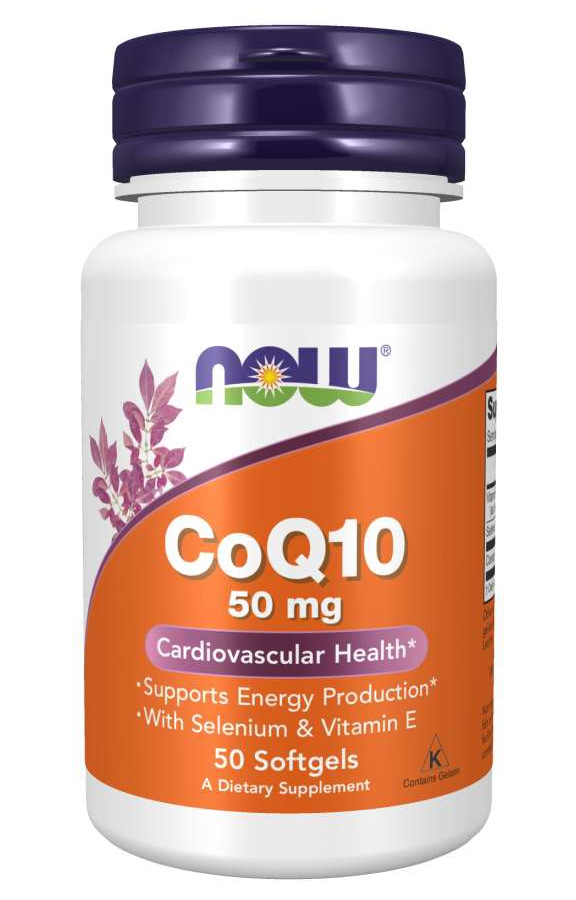CoQ10 is short for coenzyme Q10. CoQ10 is a lipid soluble antioxidant created by all cells in the human body. It plays a critical part in the generation of cellular energy, enhances the immune system and is a free radical scavenger. (1) It is crucial component of the mitochondrial electron transport chain located in the inner mitochondrial membrane. * (2)
CoQ10 protects cell membranes and DNA from free radical oxidative damage. (1) Aging, poor eating habits, stress, and infection can all contribute to poor synthesis of CoQ10 from food and a CoQ10 deficiency can result. Research has shown that after about the age of 35 the ability to synthesize CoQ10 from food diminishes and deficiency can develop. (1)
Low levels of CoQ10 are associated with several diseases and age-related chronic conditions. Supplementation of CoQ10 appears to improve mitochondrial function and grants antioxidant protection for organs and tissues affected by various conditions. (2) CoQ10 may positively affect cardiovascular disease, metabolic syndrome, diabetes, kidney disease, inflammation, neurodegenerative diseases, and fertility. When given CoQ10 and selenium over a 4 year period elderly individuals reported an improvement in vitality, physical performance and quality of life. (2)
Dietary CoQ10 repels water (hydrophobic) and has a large molecular weight which can lend to slow and limited absorption. (1) If absorption is a concern, some supplement formulations of CoQ10 are designed to be more bioavailable. One can also take CoQ10 with fatty foods. (1) The safety record for CoQ10 is great. (3) The highest safe dose of CoQ10 was found to be 1200mg daily. Though in one study 2400mg/day was found to be generally safe and well-tolerated for patients with early-stage Huntington disease. (2)
Ubiquinol is the fully reduced form of CoQ10 that you will also see on supplement shelves. Ubiquinol itself is a potent antioxidant of which there is 10 times the amount of in the outer layer of skin that in deeper layers. (1) Supplementation of CoQ10 can possibly very helpful for skin health. (1) There are also topical products that contain CoQ10. If you see Ubiquinone as an ingredient, it is an earlier state of CoQ10 before is fully reduces into Ubiquinol. (1)

* “Mitochondria are the main intracellular location for fuel generation; however, they are not just power plants but involved in a range of other intracellular functions including regulation of redox homeostasis and cell fate. Dysfunction of mitochondria will result in oxidative stress which is one of the underlying causal factors for a variety of diseases including neurodegenerative diseases, diabetes, cardiovascular diseases, and cancer.” (5)
Featured image by PaweB CzerwiDski on Unsplash
- Borekova M, Hojerova J., Koprda V, Bauerova K. (2008). Nourishing and health benefits of coenzyme Q10 – a review. Czech J. Food Sci, 26, 229-241.
- Hernandez J, Bernier M, Lopez-Lluch G, Navas P. (2018). Coenzyme Q10 Supplementation in Aging and Disease. Frontiers in Physiology, 9, 44. doi: 10.3389/fphys.2018.00044
- Bhagavan H, Chopra R. (2006). Coenzyme Q10: absorption, tissue uptake, metabolism and pharmacokinetics. Free Radic Res., 40(5), 445-53. doi: 10.1080/10715760600617843
- Kang J., Pervaiz, S. (2012). Mitachondria: Redox Metabolism and Dysfunction. Biochemistry Research International, 2012.
